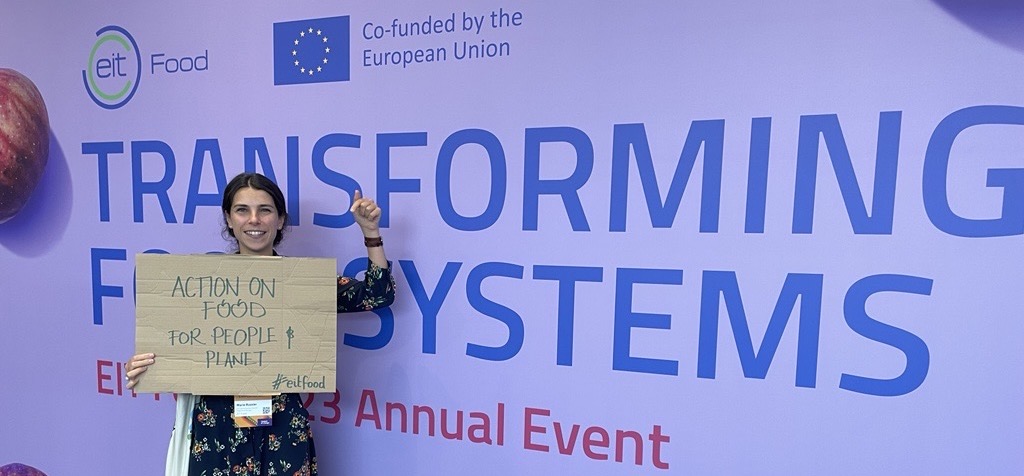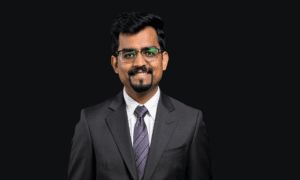Europe’s food system is under pressure from climate change, inflation, and innovation bottlenecks — making early-stage support more critical than ever. We had the pleasure of speaking with Marie Russier, Head of Entrepreneurship Programmes at EIT Food, about how this interconnected model is reshaping support for science-based founders. EIT Food — the EU-backed food innovation community — takes a full-pipeline approach to entrepreneurship, helping ventures grow from first idea to scale-up through its three programmes.
With over a decade of experience in foodtech, health innovation, and sustainability, Marie brings a unique perspective on how to connect science-based ideas with real-world outcomes — and explains what it really takes to turn agrifood startups into system-level solutions.
Q: Marie, can you tell us more about your background and what motivates your work at EIT Food? What’s your vision for entrepreneurship in the food sector?
A: Throughout my career, I’ve worked across food systems, health, and sustainability — all deeply interconnected, and all in dire need of transformation. I’ve worked across product innovation, marketing, and strategy at companies like Sanofi, Philips Healthcare, Galapagos, and UCB, and have led sustainability initiatives with organisations such as Climate-KIC. What brought me to EIT Food — and continues to motivate me — is the opportunity to support science-driven entrepreneurs who are addressing some of the most urgent challenges of our time: food insecurity, climate resilience, and public health.
At EIT Food, I lead the Entrepreneurship programmes team, where we support ventures at different growth stages — from lab to market. My vision is to create a system where the best ideas don’t fall through the cracks, and where founders have access to the expertise, resources, and networks they need to grow. That means helping them navigate regulatory pathways, connect with the right partners, and ultimately, scale with impact. In a sector as vital as food, we can’t afford to let potential go untapped.
Q: What are the biggest challenges currently facing the agrifood system in Europe — and what kind of innovation is most urgently needed?
A: Europe’s food and agriculture sector is under enormous pressure. Rising food prices remain the leading driver of the cost of living in the EU, with food inflation averaging 3.3% year-on-year. At the same time, climate change is disrupting supply chains — 96.5% of cocoa, for example, is imported from countries highly vulnerable to climate impacts. Agricultural emissions are another concern. Despite the EU’s ambitious climate targets, they’ve remained virtually flat since 2005, decreasing by just 2% as of 2022.
Beyond these issues, we also face challenges around waste and fragmentation. The EU generates 59 million tonnes of food waste annually, costing €143 billion. Innovation support is often scattered, with a persistent gap between early research and market adoption, especially for deep tech solutions. That’s where we believe a structured, stage-based approach to supporting startups can make a real difference.
Q: Looking at these challenges, how are the startups in your programmes helping create real change?
A: The startups we support are tackling these issues head-on. Many are developing practical solutions that reduce both the environmental and economic costs embedded in today’s food system. For example, some are replacing resource-intensive ingredients — like palm oil or animal protein — with fermented or cell-based alternatives that are more sustainable and scalable.
Others are focused on soil health and regenerative agriculture, building microbial and AI-driven tools to improve yields while reducing reliance on synthetic fertilisers and pesticides. Several are rethinking packaging altogether, using biodegradable materials like seaweed to reduce plastic use and support circularity.
These innovations are not only technologically promising — they’re moving toward commercial reality. Our approach helps founders test these ideas in real markets and with real partners, so they can move from concept to impact faster. In the face of such urgent challenges, this kind of science-backed entrepreneurship is essential.
Q: With so many incubators and accelerators offering funding and workshops, what do you think sets your approach apart when it comes to creating meaningful, long-term impact?
A: Our entrepreneurship programmes not only accelerate startups, but embed them within a meaningful, long-term ecosystem. The difference lies in the depth and consistency of support. From day one, startups engage with Europe’s largest agrifood network — including major corporates, leading universities, research institutes, and investors. This gives them early insight into market needs, potential partners, and product–market fit.
Another important aspect is continuity. We offer a clear progression: from Seedbed, where ideas and market potential are validated, to the EIT Food Accelerator Network (FAN), which support companies with technology validation towards a successful market adoption, and finally, to RisingFoodStars, which helps companies upscale their commercial capabilities across Europe. This isn’t about just giving teams a platform — it’s about guiding them through each stage of growth with the right support, connections, and tools.
Q: Beyond funding, what are early-stage founders telling you they need most — and how are you adapting the programmes to respond?
A: Founders often tell us that beyond capital, what they really need is connection — to the right expertise, infrastructure, markets, and decision-makers. Our programmes are built to create those bridges. In Seedbed, for instance, we don’t just offer equity-free grants — we pair founders with mentors from Europe’s leading universities and agrifood institutions. They help startups validate not only the science, but also the market fit and commercial potential. The programme also facilitates direct engagement with potential customers, further strengthening market fit.
In FAN, startups get exclusive exposure to corporate partners and gain access to facilities for piloting and testing. And as they grow, RisingFoodStars helps them build their visibility across the EU, refine their commercial strategy, and prepare for large-scale fundraising. We also listen closely to founder feedback. That’s why we’ve introduced new elements over time — like mental wellbeing resources and technical validation funding — to better support both the personal and professional sides of the founder journey.
Q: What are some standout examples of startups that show how this approach works over time?
A: We’re proud to see many startups progress through our entire support pipeline — from early exploration to commercial success. One great example is MicroLub, which started in Seedbed and went on to raise £3.5 million for its innovative clean technology that reduces energy use in food processing. Another is constellr, a FAN alumnus and EIT Food portfolio company using satellite data to monitor crop health and optimise irrigation. It has since raised €33.5 million to scale its climate monitoring solutions across Europe.
Then there’s Notpla, which joined RisingFoodStars to scale its seaweed-based packaging. It has raised €23 million and is now collaborating with global retailers to replace single-use plastics. We’re also seeing newer success stories, like PFx Biotech and Clean Food Group. Both came through FAN and joined RisingFoodStars this year. PFx Biotech closed a €2.5 million round to scale human milk proteins for advanced nutrition, and Clean Food Group is preparing to launch a palm oil alternative with 90% fewer emissions. These examples show that with the right support at each stage, startups can grow from ideas to companies delivering real, measurable impact.
Q: Looking ahead, where do you see EIT Food Entrepreneurship growing in the next few years — and what areas of innovation are you most excited about?
A: We’re at a pivotal moment where the demand for agrifood innovation is higher than ever – not just in Europe, but globally. I see EIT Food Entrepreneurship continuing to grow as a strategic bridge between bold ideas and system-level change. We’ll keep strengthening our support for key areas like regenerative agriculture, circular ingredients, precision fermentation, and AI-enabled food solutions. These are not just trends — they’re fundamental to building a food system that is healthier, more inclusive, and future-fit.
What excites me most is the increasing willingness to collaborate across the ecosystem. Startups are working with corporates, research labs, and each other in ways we haven’t seen before. Our role is to keep enabling that — through mentorship, funding access, and support navigating complex markets. We want to keep evolving our programmes alongside the founders we serve, and make sure Europe remains fertile ground for agrifood innovation.



































